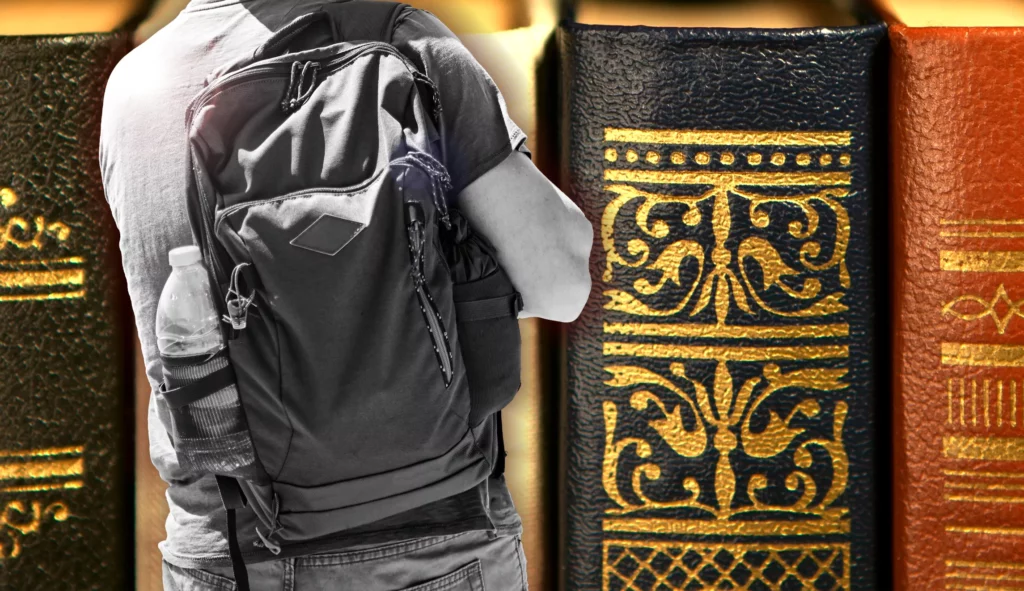My college major was Sleeping To Eleven, with a minor in English Literature and Drinking. I was never a live-wire in the classroom. I was always slouched halfway down the chair, fidgeting with a pencil until it was time to pack up and go. So when I feel an eye-watering yawn come over my 50-something-year-old self during my afternoon classes here at Princeton Theological Seminary, I can’t say it’s a new feeling. To be honest, I had a hard time memorizing French verbs when I was a teenager, so it’s impossible to detect if my brain has gotten worse since then. Memorizing the first and second declensions of adjectives in Biblical Greek is about as painfully impossible now as it would have been when I was in college. That is, had I had the courage to take such a class back then. Which I didn’t.
So, mental dullness and corporeal laziness are old friends, and the fact that they’re back again isn’t surprising. Truthfully, in a lot of ways it’s sort of cheering — it’s nice to know that some things stay constant, even 40 years and one career later. A very wise psychiatrist once told me that the secret to his profession is remembering that people don’t really change. And neither do their study habits, I’ve now learned.

But what I was not ready for was the physical pain associated with being a student. On most days, I carry around stacks of books, all stuffed into a backpack that juts out from my back like I’m carrying a Fiat 500 from my shoulders. And that’s just for a few classes. For Biblical Greek, there’s a textbook and a hardback copy of the Novum Testamentum Graece, plus a notebook for my pathetic attempts to practice writing words where the “p” is an “r” and the “n” sounds like “ay” and the “v” is an “n”. Plus a heavy collection of primary sources from the Early Christians, a bunch of dusty histories, and of course the actual Bible, which even the most ardent atheist recognizes as a heavy piece of publishing.
The result is that I mostly walk bent over at the hips, to balance out the weight when I’m wearing my backpack with both shoulder straps. I know it’s better for my health to wear a backpack that way, but I still can’t shake the feeling that I look like the world’s oldest nerd. When I was in school, only the losers and weenies walked around with both straps engaged. The cool kids, like me, strode around campus carrying our books (if we even did that) dangling from one shoulder, with only one strap in practical use. The idea was to create the illusion that school was just a casual, kickback experience that we didn’t take seriously. One strap meant we were just dropping in for the afternoon. Two straps meant we were actually trying to learn. And that would ruin the whole vibe.
I tried the one-strap method for the first week of my return to campus, and the result was that I pinched a nerve in my left shoulder and was unable to raise my arm above my rib cage or turn my head to the right for nine days. So now, it’s a two-strap operation, with a major forward-lean for ballast. If you see me walking on campus, you might turn to someone to ask who that bent-over old peasant woman is in the distance carrying her bundle of wares.
CLICK HERE TO READ MORE FROM THE WASHINGTON EXAMINER
I know what you’re saying to yourself, and let me stop you right there: I am aware, for the record, that most of these books, especially the heaviest ones, are available in e-book or PDF form. I could carry around my entire courseload on one thin tablet, is what you’re no doubt muttering to yourself. The near-entirety of the world’s written works have been digitized and tossed into the cloud, and there’s no reason for anyone to carry around a back- and neck-breaking load of paper. And while that is true, I’ve never felt comfortable reading something important on a screen — especially one that offers so many tantalizing distractions. Reading, say, The Vocation of Anglican Theology on the same attention-busting device on which I scroll through Instagram and X and fall into YouTube wormholes, plus do the Wordle and check in on Drudge? Well, that would be the same thing as not reading The Vocation of Anglican Theology.
And I want to read all of the textbooks. I want to get every drop of learning I can. My psychiatrist friend, all those years ago, was wrong. People can change. I, for instance, have finally become an engaged student. And I have the ruined posture to prove it.
Rob Long is a television writer and producer, including as a screenwriter and executive producer on Cheers, and he is the co-founder of Ricochet.com.
